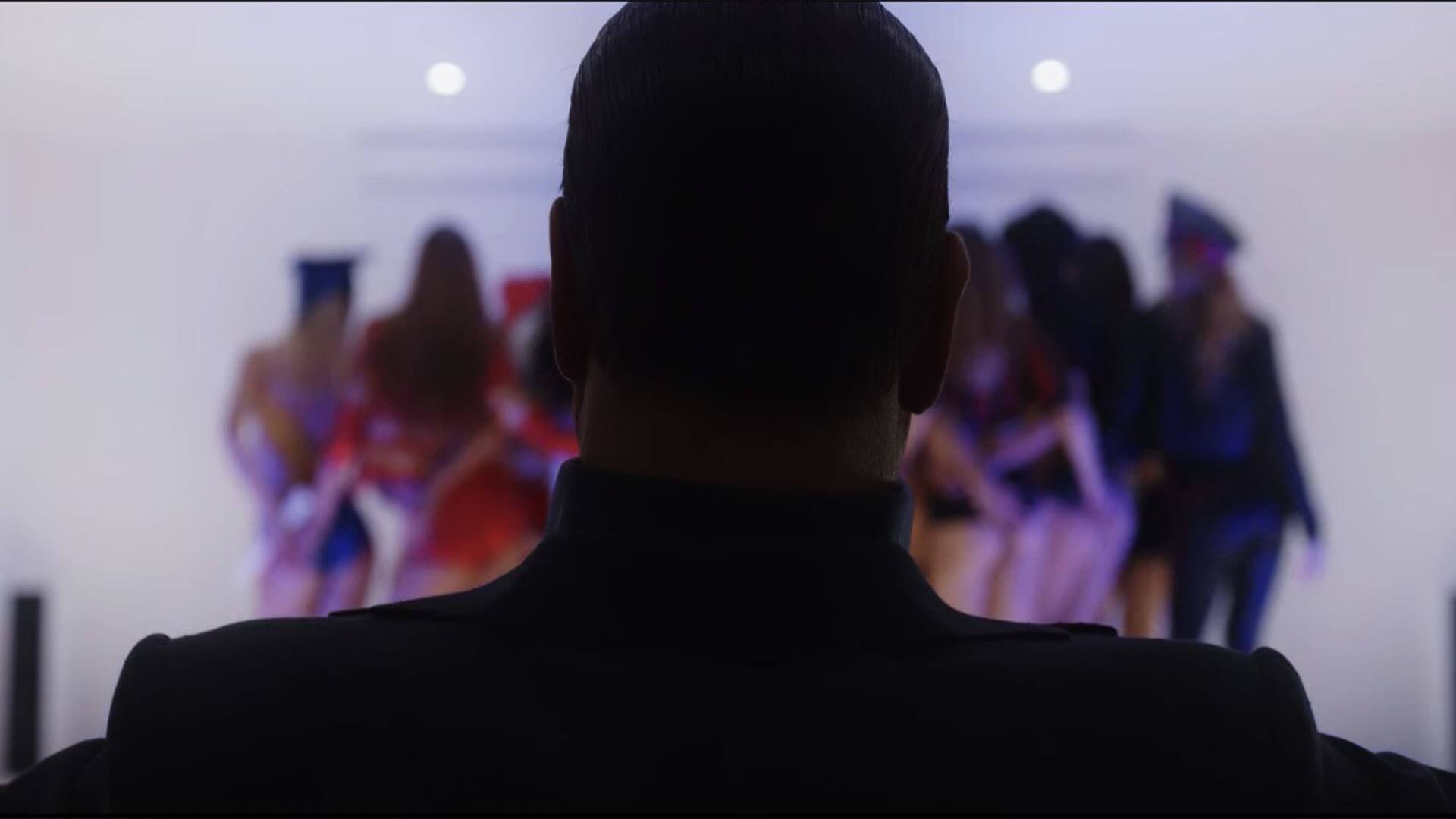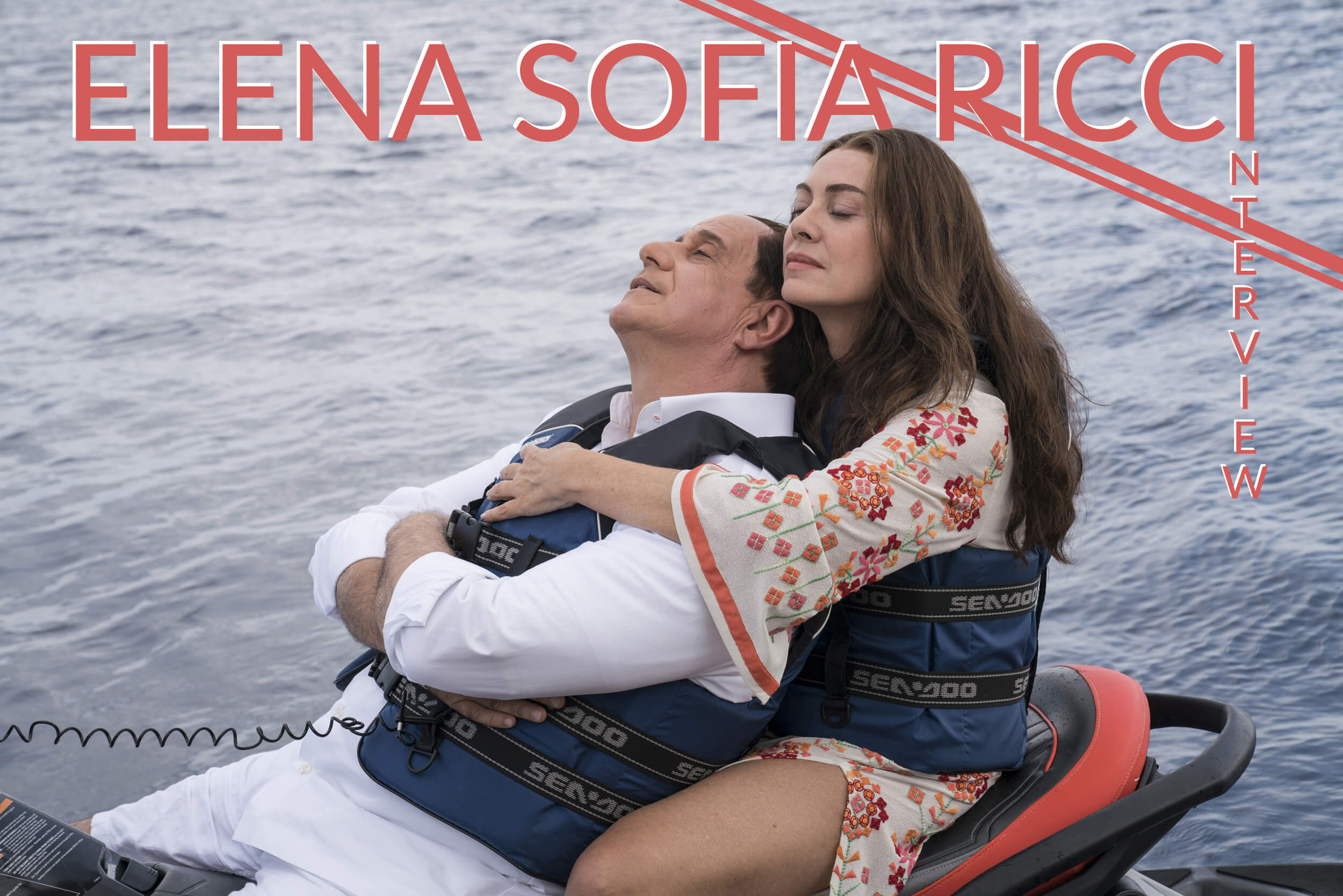Elena Sofia Ricci is one of the best-loved figures in Italian Television, and a woman of great elegance: when you meet her, you meet a down-to-earth, pleasant woman, as well as an incredible, all-around artist. After coming from a theatre background, which she carries on to this day both on and in front of the stage, Elena became a “popular-national figure,” as she describes herself, thanks to her Cinema and TV roles which, over the years, have won her the love of the Italian audience.
In Paolo Sorrentino’s “Loro,” Elena Sofia Ricci embodied Veronica Lario in a performance that is bound to give goosebumps, thanks to its intensity and deeply human outlook on the personal, silent drama of a woman who is trying to keep her life from falling apart: an astonishing performance who earned her the Nastro D’Argento and a nomination for the David di Donatello.
Next to Toni Servillo‘s astonishing performance as Silvio Berlusconi, Ricci’s Veronica is a woman that is clinging not only to her marriage, slowly going adrift, but her dignity as a woman.
We met Elena Sofia Ricci in London, at the Italian Cultural Institute on the occasion of the Cinema Made in Italy film festival, in which London opens its doors to Italian most recent movies and to well-loved directors, and actors. On this occasion, the qualities of the Cinema Made in Italy are celebrated and recognized in the multicultural and vibrant British Capital, and we had the chance to speak with Elena regarding “Loro,” which was one of the films presented (and appreciated) at the festival.
Here’s what the actress told us about being chosen by Paolo Sorrentino, working on “Loro” and her experience as a theatre director, after winning the Flaiano Prize for her role on stage in “Vetri Rotti” last year.
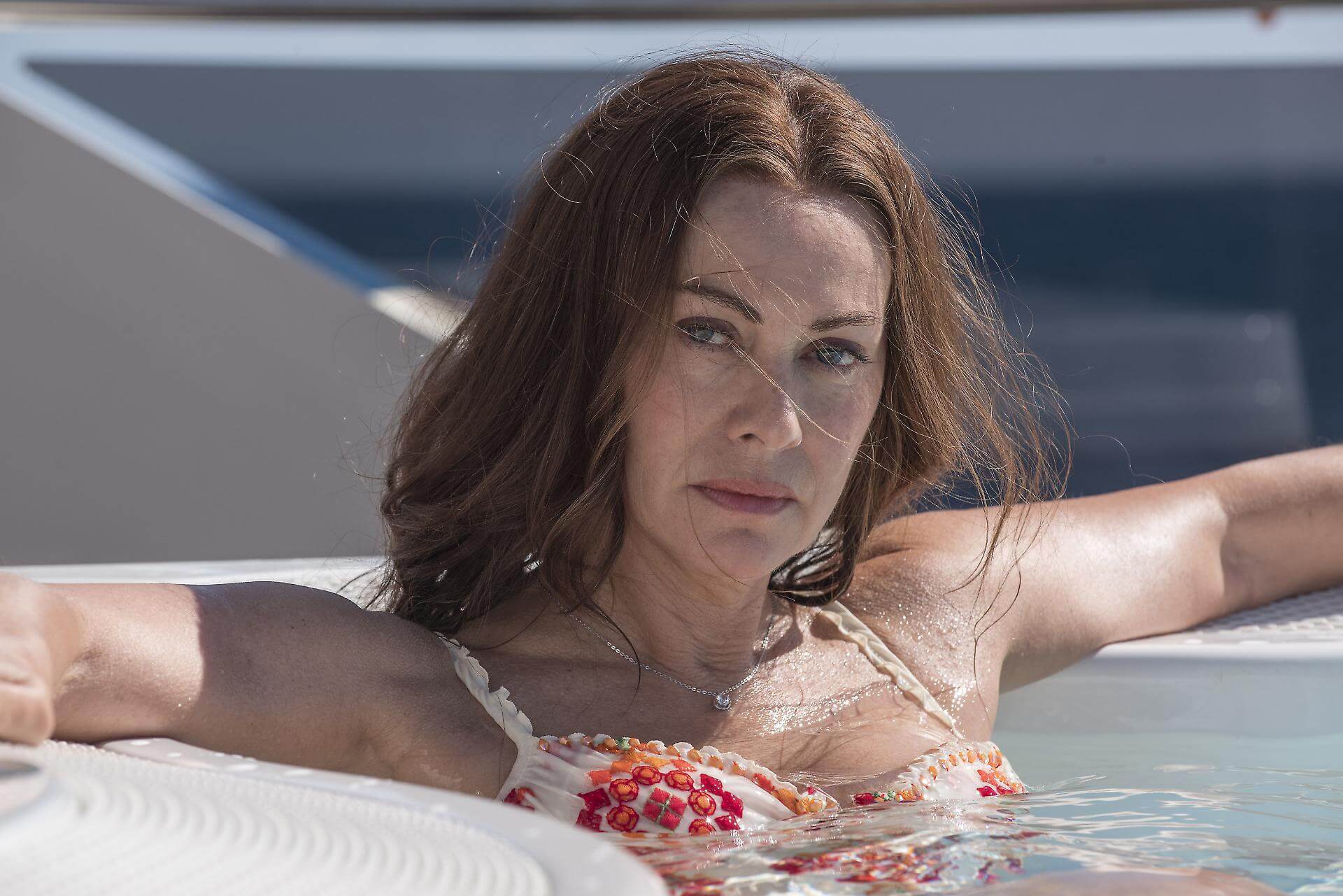
For the role of Veronica Lario, you won your third Nastro D’Argento, and you have a nomination for the David di Donatello: how do you feel about it and what was your greatest satisfaction?
____
The greatest satisfaction was to be considered by Paolo Sorrentino, even only the fact that he thought of me. When my agent called me I thought it was the wrong number: because the world of cinema is just like that, it’s snobby about television and those who work too much inside of a TV environment, of someone who became a people’s character as I did. However, things are changing now and the walls are coming down: there is no longer this massive difference between cinema and television. Actors are actors, we finally migrate from medium to medium without problems. Once there was theater, cinema, television. I come from a theater background, I did cinema, and then I worked in Television: people were never sure about where to “place” me. Then, at one point I settled into television and I stayed there, also thanks to Ferzan Ozpetek who gave me two wonderful characters, both for “Loose Cannons” and “Fasten Your Seatbelts,” which was nominated as Opera Prima and maybe it deserved to. So when they called me to say, “Paolo Sorrentino wants to meet you,” I thought it was a joke. I said, “do you think that Paolo Sorrentino would ever think of me?” But I was wrong: he followed me, he valued me as an actress. We met, he asked me for an audition and, of course, I did it without thinking twice about it [laughs] I was happy. And then I got the part, and it was like winning an Academy Award.
“And then I got the part, and it was like winning an Academy Award.”
The Nastro D’Argento Prize was a nice recognition, mainly because I had the chance to dedicate it to my mother in the last days of her life. She had just enough time to see this gratification; she had been waiting for this moment, she cared about cinema eventually recognizing my qualities. And just before she left I brought these prizes to my mother; I dedicated the Nastro D’Argento and the Flaiano Prize, which I won as Actress of the Season for “Vetri Rotti,” the show I did this winter, to her. Let’s say this Nastro D’argento…maybe, one day I might win an Oscar too, who knows: I doubt it, but even if that should be the case, there will never be a prize as heartfelt as this Nastro D’argento I got to dedicate to my mother. That was just three, four time an award. Obviously, I’m delighted with the David nomination as well, because it’s always lovely: it goes without saying, awards are always a beautiful thing.
Also, you are very much loved by the public, so that’s already some kind of recognition…
____
Yes, absolutely. That’s the recognition, the greatest of its kind. Also, I have already won two Davids: now, winning the third would not be bad, I would be happy. I got a nomination a few years ago for “Loose Cannons:” on that occasion, I didn’t win, we’ll see what happens this time. I’m already happy as things are now. Moreover, I’m in a fantastic slot with excellent actresses, so it’s already a beautiful experience.
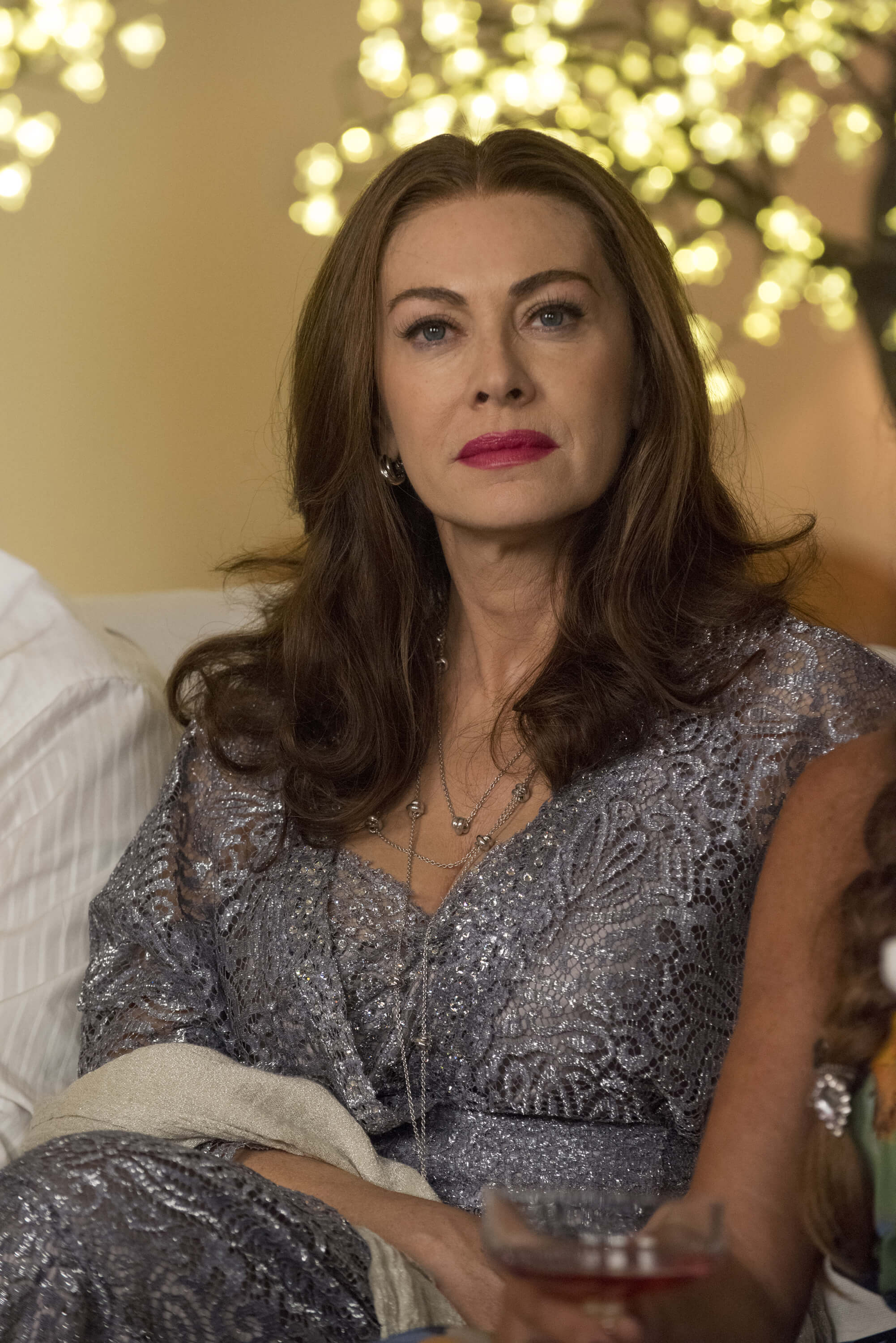
“There will never be a prize as heartfelt as this Nastro D’argento I got to dedicate to my mother.”
Your interpretation of Veronica Lario is a woman who “speaks” to the heart of both women and men, people who can see themselves in her character and situation. How did you approach the role?
____
That’s the way Paolo wrote it; the role was written masterfully by Sorrentino, who created perhaps one of the most beautiful scripts I’ve ever read in my life. His writing is beyond incredible, so approaching the role was simple because it was all masterfully written. It was just about pouring your heart in it and imagining this woman as one of us. And I’m sure that’s the case.
Because, despite the fact that we’re talking about Silvio Berlusconi and Veronica Lario, they still are a husband and wife as anyone of us. They had their drama like many of us and, as many of us, their story came to an end with bitterness, with difficulty, with fatigue, trying to save a marriage and a project they shared for 26 years until the last moment; no way that could be easy, right? It must’ve been painful for both of them, and this deserved respect.
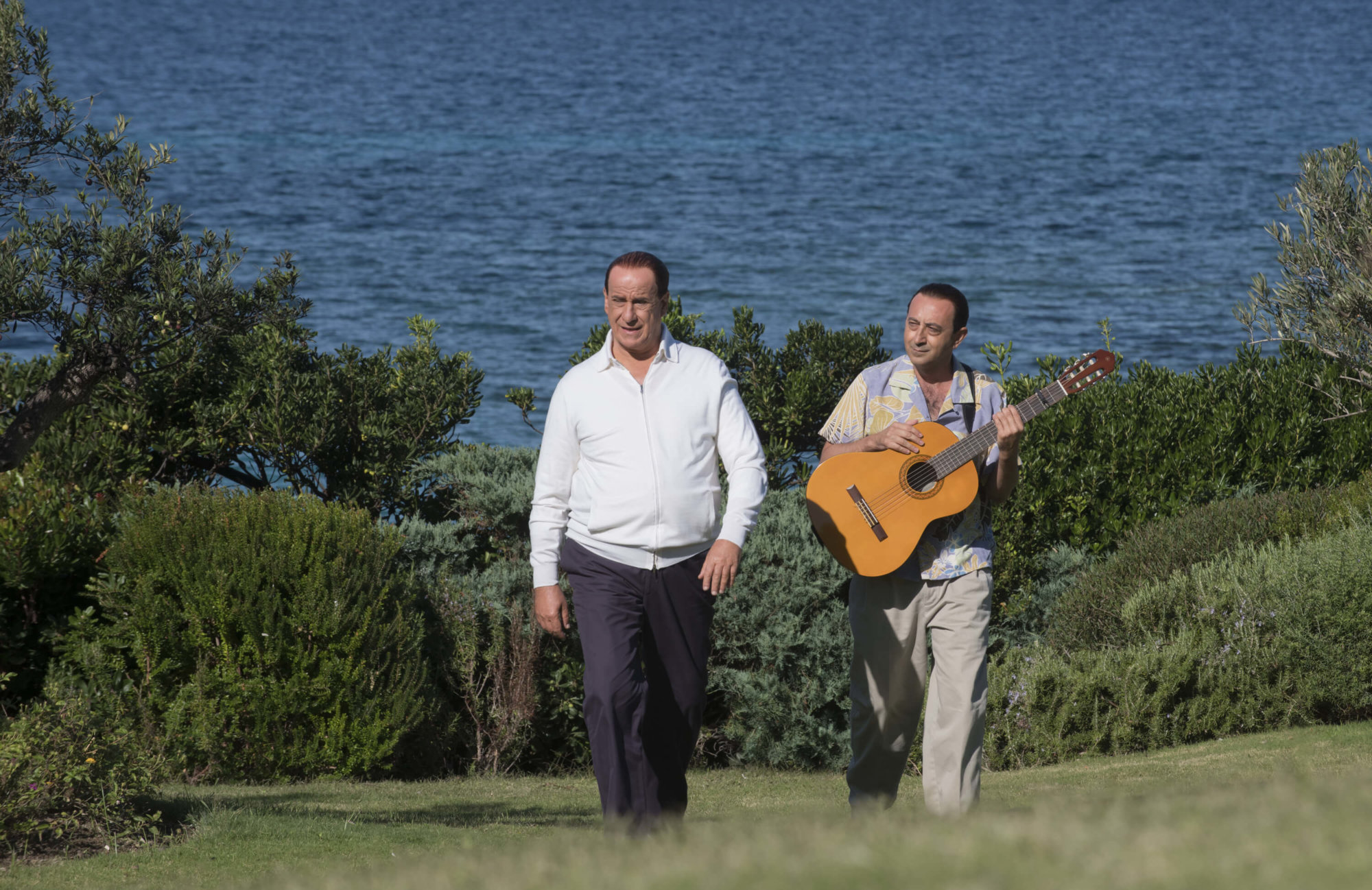
“It must’ve been painful for both of them.”
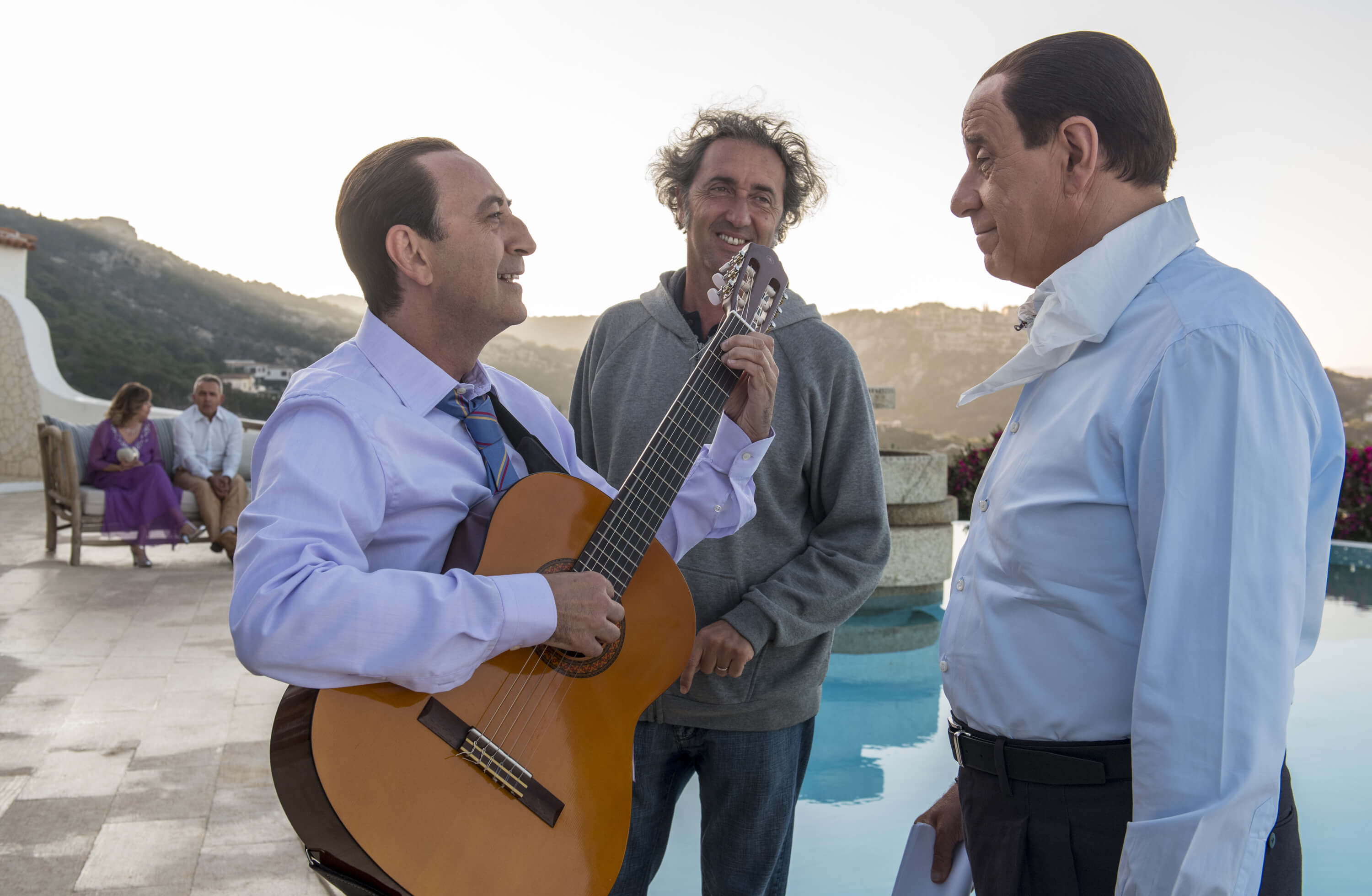
Moreover, the fact that the household is overhearing their conversations seems to evoke the fact that their closure is “public” and that we can’t talk about intimacy. It seemed to me they were “public” until the end, also according to the outlook on the protagonist, who is a figure who has always kept his life public, for better or for worse.
____
It is an interesting vision, and it is also nice to know the interpretation of the public. Who knows what was in Paolo’s head when he wrote that scene. However, this interpretation is beautiful. Let me tell you that, I rehearsed the scene at home with my husband who was very happy, he had a fun time acting as Silvio Berlusconi for three months, because I first auditioned and then got the callback. But when he helped me with the part, the scene of the audition was the final scene; it was challenging from the very beginning. So we argued in the living room, and our nanny with her brother, who would come into work, used to say, “are the Maestro and Ma’am fighting?” They thought we were having a real fight!
When I told him, “… And you go with underage girls!” she came to me and said, “Ma’am, did the Maestro go with underage girls?” [Laughs] So there was this funny episode. But yes, even at that moment they couldn’t share an intimacy, because there was the household listening to them.
Also, when they enter the kitchen, the first thing you see is the wall with the faces of all the workers of the manor, and that steals the scene a bit.
____
Yes, those are moments of genius by Sorrentino and Stefania Cella, who is our set designer. Well, his set designer, I have taken appropriation of it [laughs].
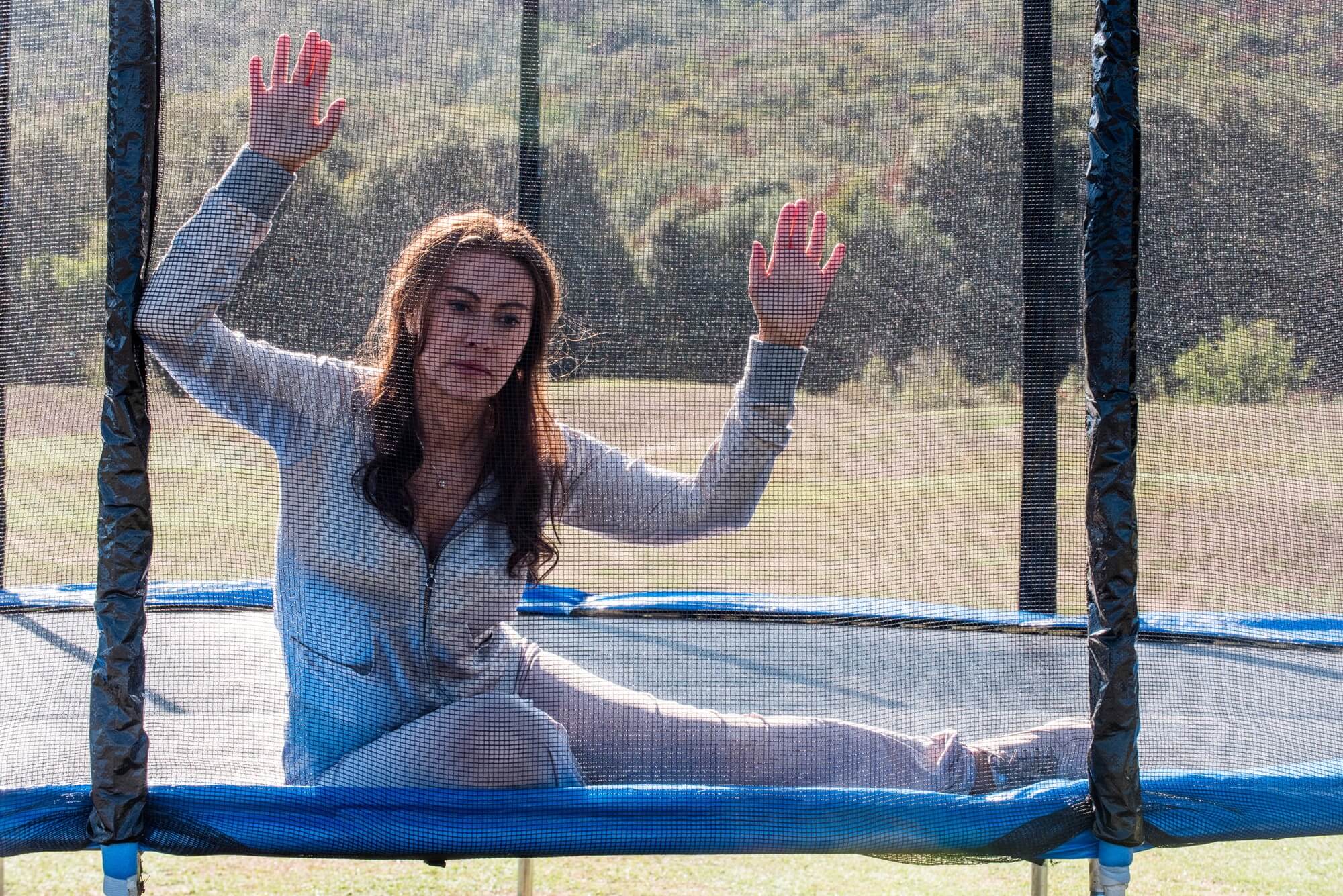
– With Bitterness, with difficulty –
For the final scene, Veronica stood out as very human; her figure was strong, despite her sad and lonely appearance for the whole film. How did you prepare for a character like Veronica in the “fictional” context of “Loro,” which naturally doesn’t aim to be a documentary film?
____
I looked for some video material, but there is almost nothing about Ms. Lario except for a few photos. I read her biography, and I also found some common ground with her. I think there were some points in common even in our lifestyle: I am an actress with a very private personal life as well, although I’m always super exposed since I’m constantly on TV and ever-present. I don’t go to Talk Shows, and I usually don’t go to dinner parties, I do not mingle into that kind of social environment much: that’s also because, working hard, I go to bed early in the evening. [laughs] Where should I go? [laughs]
So either I’m in a theater or at work, I’m not a socialite, and this aspect is indeed something that Paolo Sorrentino considered could make me “similar” to the character – This reserved attitude of ours.
How was it working side by side with Toni Servillo and Paolo Sorrentino? How was the mood on set?
____
Well, it was terrific to work with both of them. With Toni [Servillo] it was easy because he is an excellent actor, he made me feel loved from the very first moment. He told me, “I’m working very well with you” from day one. His words meant so much to me. Also, Paolo and Toni are a couple, so I was sort of the third wheel, and I was a bit there in the middle, it was quite funny.
Paolo is such an incredible director, a very attentive observer: you always feel his eyes scanning you, so I tried to be very respectful of his set and of what he wants. I made a lot of effort because I’m a such a chatterbox and he told me, “Don’t you ever get tired of talking?” And I was like, “no, look, I’m so silent on your set! You don’t know how much I usually speak.” [Laughs]
He made me feel at ease and very much loved because he understood, since he is a man of superior intelligence, that I would have loved being mocked. From the first moment, he started telling me, “but why is she here? Didn’t we choose another actress for this role? Just call that other one…”
So, Paolo indeed joked around a lot, and he enjoyed it: because I like it, I feel esteemed, and I feel loved when someone can tease me. I’m not touchy at all.
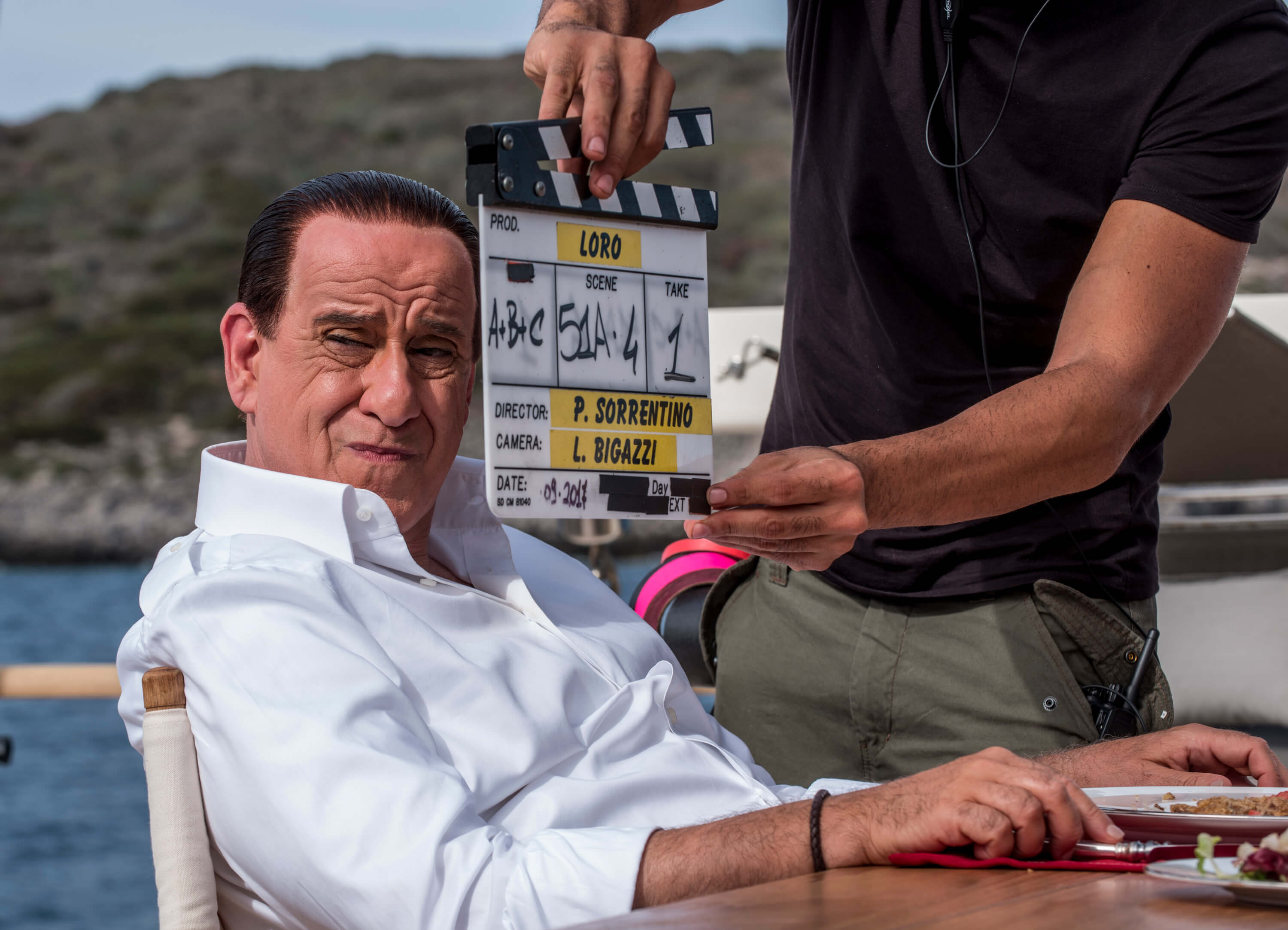
“It was terrific to work with both of them.”
Did it keep the tension in check, as well?
____
Yes, it certainly did. Not much though, because I was always in tension on Paolo’s set. He works in such an incredible way: he is very focused, his set is a very silent one where everyone has to know the part perfectly by heart and where there are no small scenes. It’s nothing like fiction, where we are continually shooting for nine months. That was a place where you could feel an incredible and fair discipline because the level of concentration was so high.
“You could feel an incredible and fair discipline…
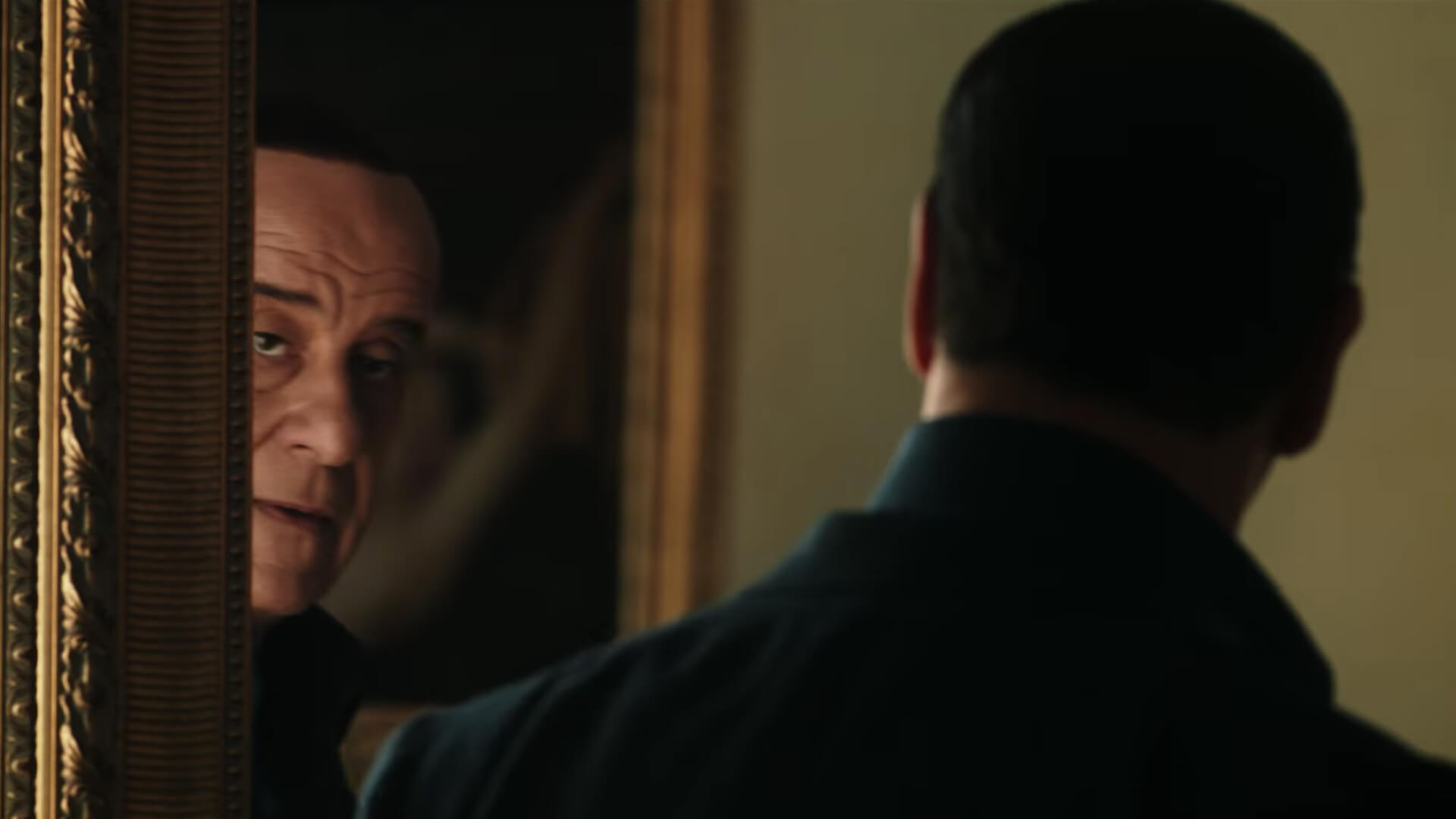
…because the level of concentration was so high.”

You are also a theater director (since 2016) as well as an all-around actress. What do you prefer: directing, the stage or maybe to stay in front of the camera? What’s your favorite thing?
____
I enjoy to change and to test my skills; I like to raise the bar, so to speak. I started directing for theatre almost by chance, I loved it, and now I’m getting ready to do it again. I didn’t think I could be a director, at all, but again I felt that, maybe, theater-wise that could be easier: I don’t think I could ever work behind the camera, not at all, but I can do so in front of a stage.
At first, I did it to help some friends, and then I got carried away. In the beginning, I said, “yes, I can help you” and then I kept getting new ideas until I asked to have my production designer. The composer had already been called ahead of me: my husband, Stefano Mainetti. It was a musical comedy, so he was called first to work on the music, and then somebody said, “why don’t we call Elena to give us a hand and direct?” To which I replied: you guys are crazy, I have never done anything thing like this before. It was a comedy about the nine months of pregnancy, a fascinating project, so I said, “Oh well. I’m a mom, and I’m an actress, maybe I can help”.
“Oh well. I’m a mom, and I’m an actress, maybe I can help.”
Then I grew more involved with the project, and I transformed the direction into something very complicated. I got a bit tied up and came up with this very intricate set design, with characters that disappeared and appeared depending on how the lights moved, or characters that entered from one side and left from the other. There were three actors: two played all the parts while only the protagonist was always on stage for her role, with a game of quick change of costume, a lot of dialects…it was a lot of fun, with a live orchestra. At this point, I said, “we can’t leave the orchestra alone to play in the back, it’s nicer if they interact” so I dressed them like toy dolls: it represented the child’s world as it was becoming an obsession for this poor father and this mother. The moment a pregnancy test shows a positive result your life changes: you are showered with pacifiers, diapers, puppets. All of a sudden, you are no longer alone, you are no longer free; you can’t do as you please anymore. And this will go on all your life because, eventually, consultations at school take the place of diapers, but that’s always basically the same [laughs]. Things change, but the focus on a child remains the same: that was my approach to the show.
I also like to be a bit cynical: I don’t necessarily face things with a bleeding heart, I hate melodrama and overly cheesy, bleeding-heart-kind-of things. I like feelings, so I’m all for sentimental, but not melodrama, I’m allergic to that kind of thing. Then it was fun because, as soon as there was a sentimental and touching moment I had to break it with something debunking. In those moments the theater roared with laughter because perhaps the audience was on the verge of crying a moment before and then everything was toned down by something debunking. It was already in the script, but I exasperated this aspect, and I enjoyed it.
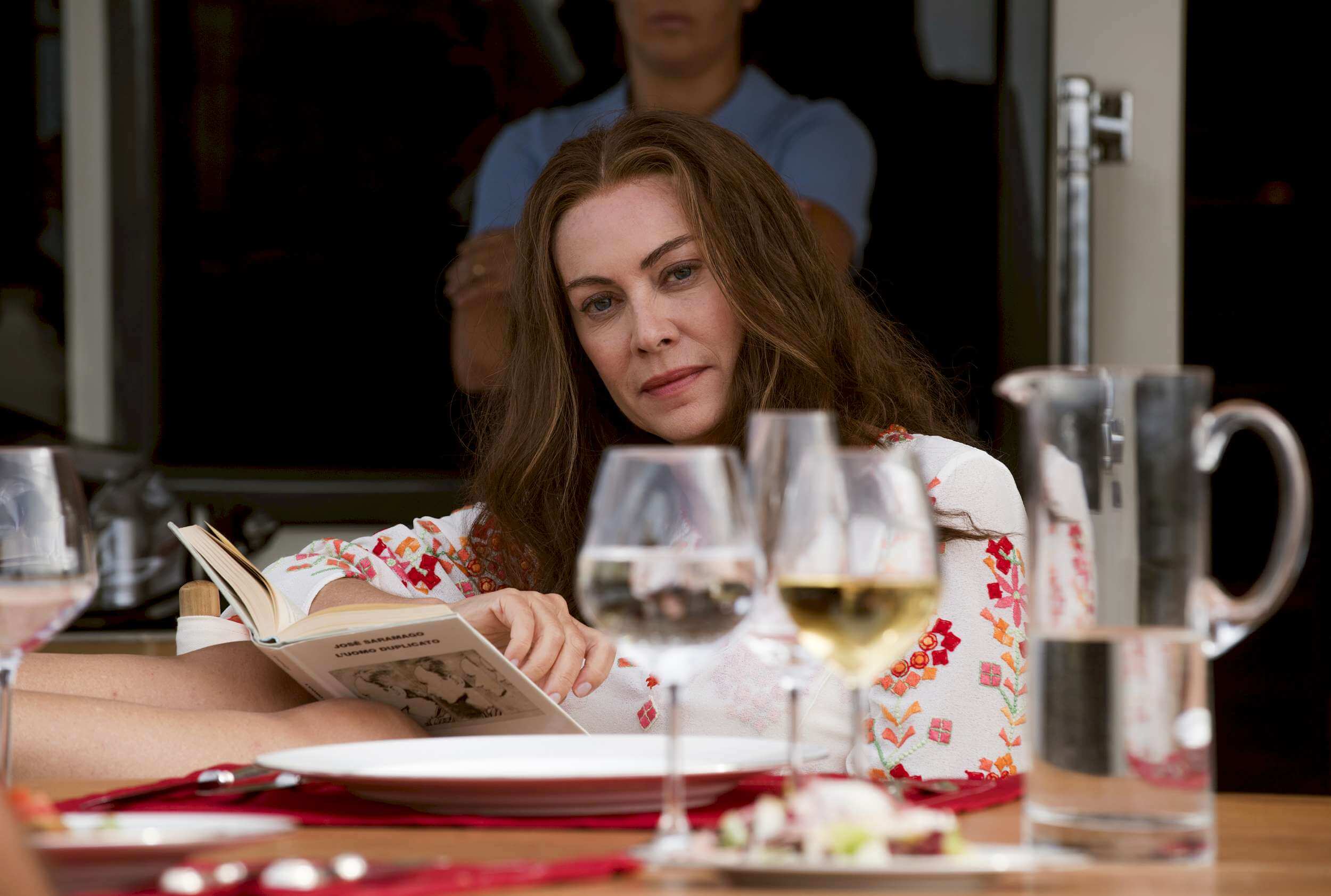
So will you soon direct again?
____
Yes, but I will do something completely different! Something classic, super-ambitious, and a whole other thing.
It will happen in 2020.
You often say that you like to challenge yourself, raise the bar: what’s next for you?
____
Now I will have to start a new TV series with Pappi Corsicato, who is a fantastic director. It’s going to be a challenge for both of us: because it is his first experience with long TV Series, while and for me it will be a different kind of Series.
